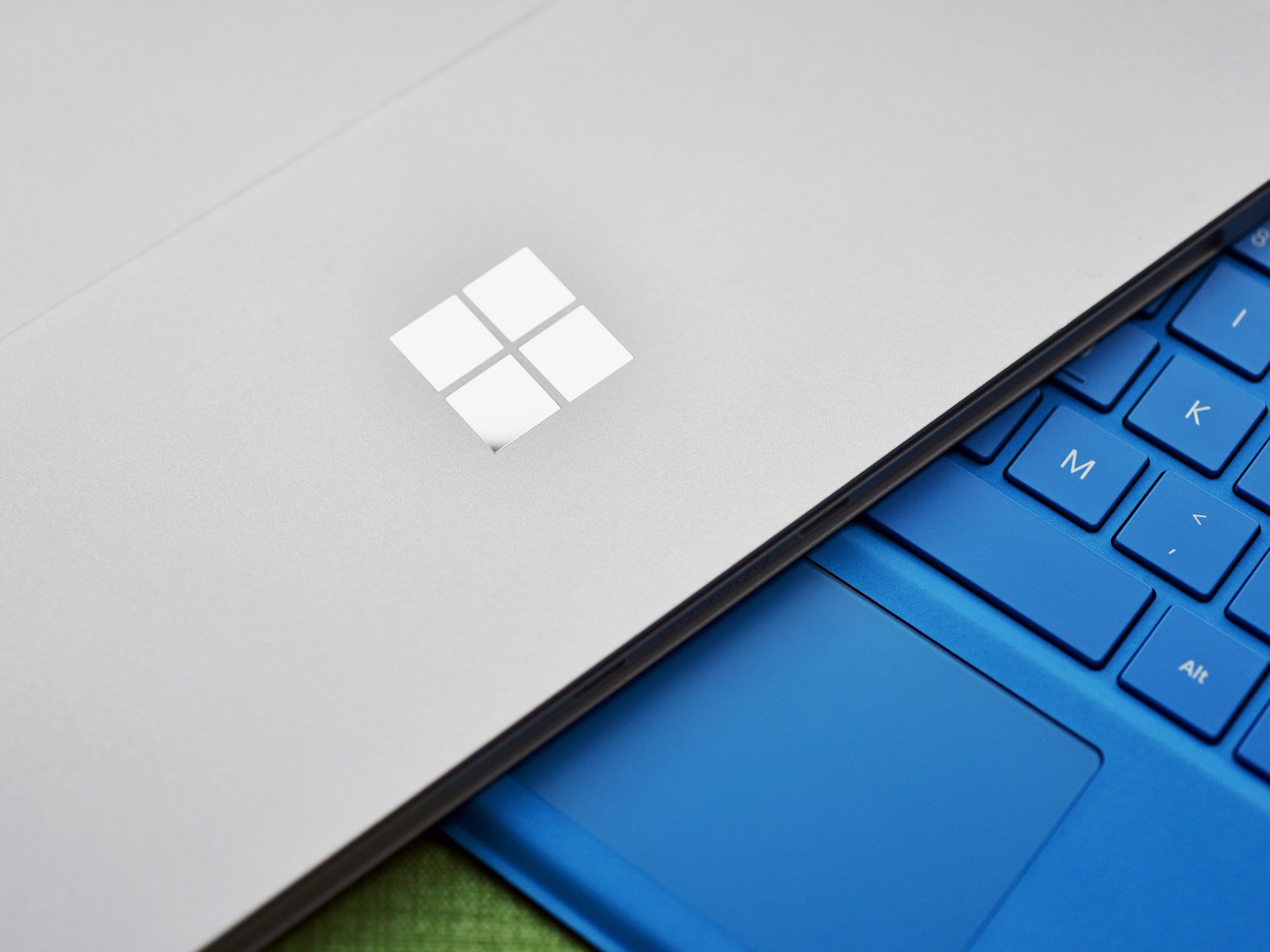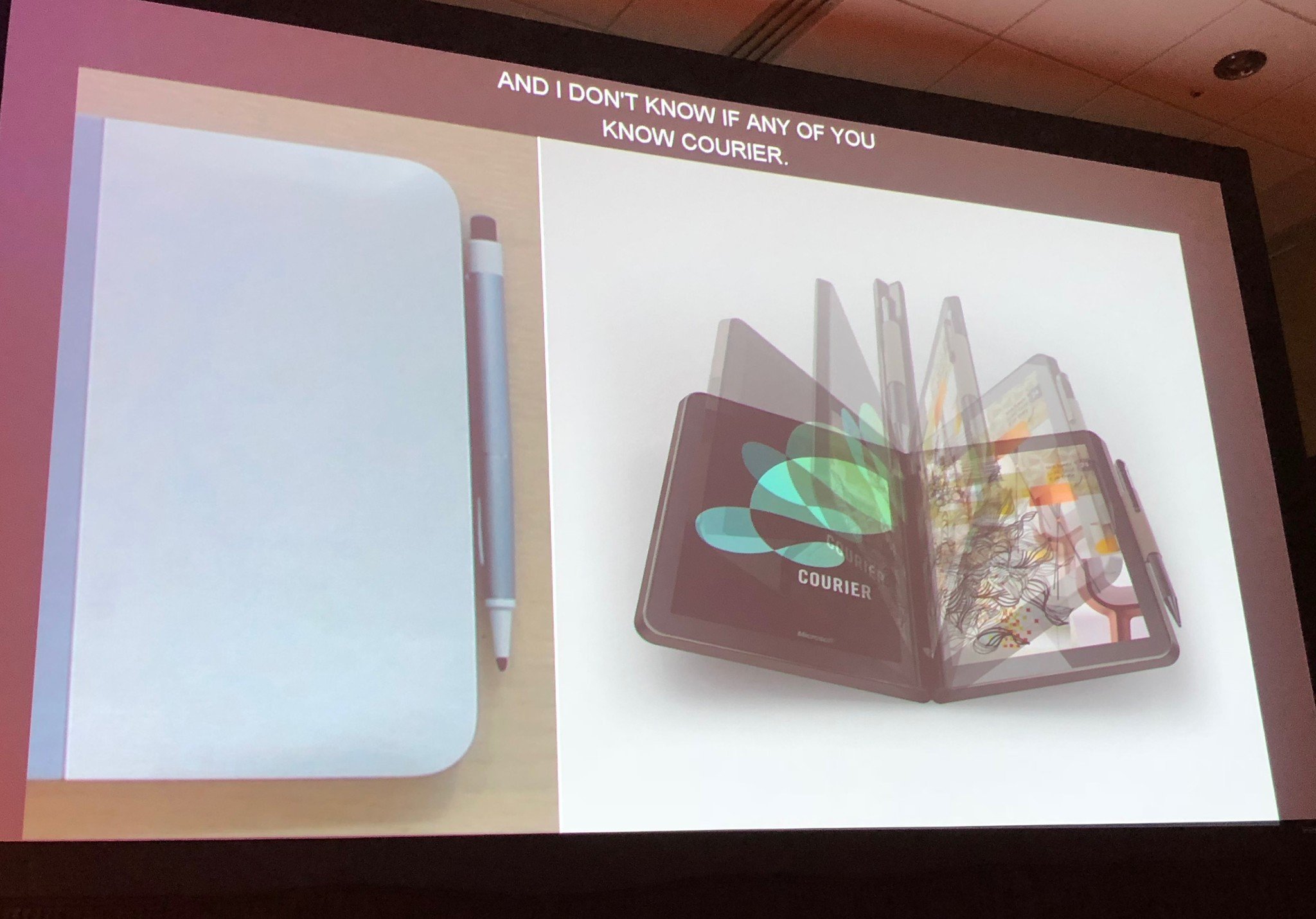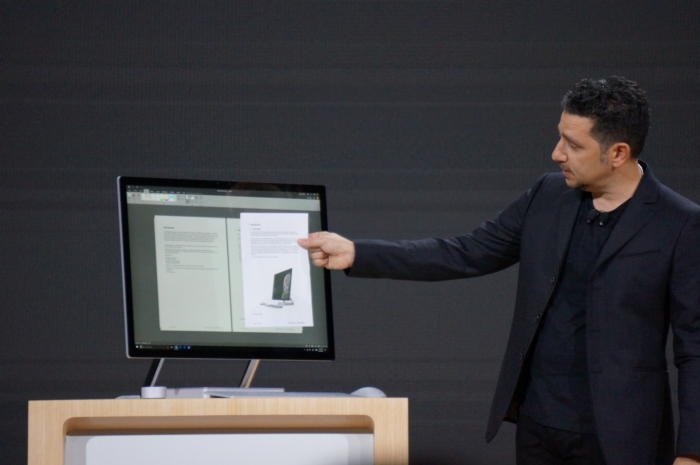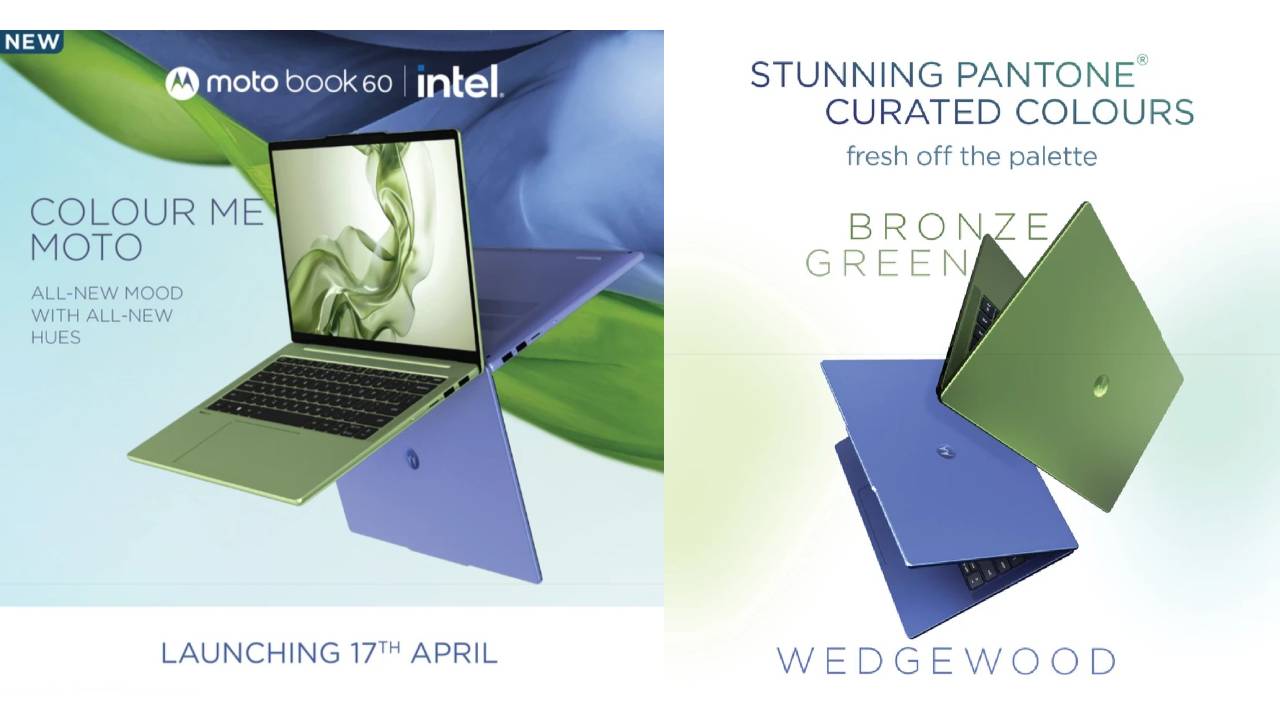Microsoft 'Andromeda' and 'Centaurus:' Does size really matter for a new Surface?
Does size really matter? Andromeda thinks so.

Over the last couple of weeks, talk of a larger "Andromeda" device has been making the rounds on the web. I learned rather quickly that this larger device wasn't actually Andromeda at all, but another device codenamed "Centaurus" that Microsoft is prioritizing over Andromeda for the time being. Centaurus features the same two-screen setup that Microsoft is working on with Andromeda, except it's larger and not a phone. This raises the question, does size really matter for a new Surface?
While many of us want Microsoft to make another phone, perhaps it's not a wise idea for the company to do so before it has an ecosystem in place to support it. Windows Phone failed because of a lack of apps, and that hasn't changed since Microsoft laid it to rest. If Microsoft were to come back with a new phone, regardless of if it introduced a new form factor, it would fail for the same reasons. Nobody wants a device they can't do anything with.
However, people have a different set of expectations when it comes to buying a PC over a phone. With a phone, we rely immensely on app availability, because that's the only real way to do anything on those devices. On a PC, however, app availability is not a primary concern for most people, as a lot of what a user needs to do on a PC can be done through a browser. Sure, some people need specific PC apps, mainly power users, but most people aren't primarily deciding between Windows or Mac based on the apps available.
When I first learned about Centaurus, I wasn't sure how doing a "bigger version" of Andromeda would change anything. A larger dual-screen tablet would suffer from the same problems Andromeda does, but then I remembered, Surface is pretty good with mixing things up, and Centaurus isn't going to just be a tablet. It's very likely going to be a laptop too — a PC.
Thinking about form factors

To many, this new form factor will feel gimmicky and unnecessary, but it's a new way of working. If Centaurus is modular in that it can swap out one of the displays for say a keyboard accessory or an e-ink display, Microsoft could find a unique market for it. Even if that isn't a thing, the idea of dual-screen foldable device something many people have been obsessed with since rumors of the Courier back in 2010. A digital journal that can carry your digital life is still a unique idea, and one that could work.
Since Centaurus will be larger, it can be treated as a PC, meaning people will have different expectations for it. Sure, the OS will likely be very different, but if it's Windows Core OS, it can — in theory — run Win32 programs. That's just there to tie people over until UWP apps become the primary app platform on Windows 10, however.
Here's the thing, Microsoft isn't forcing developers to build UWP apps anymore. It's not offering developers money to do it, and it's not offering to it themselves, because this system doesn't work. Instead, it's playing the long game. In 10 years, will it make sense to build a Win32 program? By then, all the old versions of Windows that don't support UWP won't be in support anymore. Windows 7 will hopefully have little to no market share.
Get the Windows Central Newsletter
All the latest news, reviews, and guides for Windows and Xbox diehards.
And while in 10 years there will still be legacy apps in use, new app makers will very likely opt to build a UWP app, because that's the app platform on Windows that's still being updated. If the revolution of PWA turns out to be a huge deal, then Windows is already ready for that as well. UWP apps and PWA are one of the same on Windows 10.
So, doing Centaurus first gives Microsoft more time to build out an ecosystem for a phone it desperately wants to build. Size does matter here, and it just means we have to wait longer for Microsoft to do a pocketable version. I'm not saying we'll have to wait ten years, but I am saying we will have to wait a little while longer until Microsoft can figure out whether or not this form factor makes sense.
It tells a good story

Releasing Centaurus first makes for an excellent chronological story too. Let's say this form factor proves popular, other OEMs jump onboard and build their own versions, and app developers start making apps that take advantage of the dual-screen setup. If that happens, Microsoft can in a few years come out with Andromeda and market the shrunken technology, which makes for a more "personal" and connected digital journaling experience.
At that point, people start looking at Andromeda as the first "true PC" that fits in your pocket. It runs Windows, it uses the same form-factor that's found in other devices that are successful, and now it can make calls. It's the full package and makes Andromeda much more appealing. In addition, if PWAs take off like we're hoping they will, it will have a selection of apps from that alone.
This could be enhanced with Android apps too, running in an emulation layer for when a user needs it. At that point, Andromeda is the full package. A Surface Windows PC that fits in your pocket, runs all the same apps as your PC does, and can even run some Android apps when required.
So, yes, I think size does matter, as it changes how we view these devices. Centaurus as a PC launching first makes sense here, as it lays the foundations for Andromeda as a phone. It would be the first phone that looks and behaves like a PC, that can also fit in your pocket. I think there's a market for a device like that.

